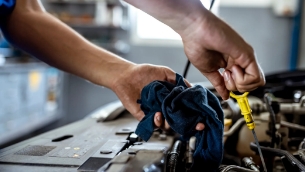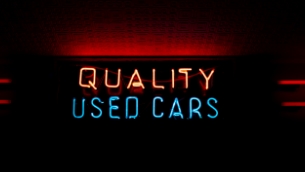Top Maintenance Tips to Keep Your Vehicle Running Longer

Keeping your car in great shape takes more than a few washes and occasional gas top-ups. For California drivers, it's even more important to stay on top of vehicle care. With stop-and-go traffic, long commutes, and extreme heat in some areas, cars face wear sooner than you might expect. Whether you're navigating packed freeways in Los Angeles or taking winding roads through the Bay Area, your vehicle works harder than you think.
The good news is that regular maintenance can make a big difference. It helps your car stay reliable, perform better, and avoid unexpected repairs. Some drivers wait until something goes wrong before taking action, but that usually leads to bigger bills. Staying ahead with simple checks and timely service can help your car last longer and save you stress in the long run.
Pay Attention to Regular Servicing
Routine servicing keeps your car running smoothly and safely. That means oil changes, fluid checks, and regular inspections. In California, hot summers, long freeway drives, and stop-and-go traffic can wear down engines faster than in other places. These conditions put more stress on key components like the radiator, brakes, and air conditioning system.
If you skip basic maintenance, small problems can turn into costly repairs. Worse, poor upkeep increases the chances of a breakdown, which is something no one wants during a long commute on the 405 or a road trip up the Pacific Coast Highway.
Along with repair costs, there's another reason to stay on top of service. When a poorly maintained vehicle breaks down or causes an accident, it can lead to higher premiums. Vehicle condition and claim history both factor into rates, which can affect the California car insurance cost for drivers over time, even if they have a clean record otherwise.
To keep things simple, create a log of your last oil change, brake check, or fluid replacement. Your owner's manual offers timelines based on mileage and age. Following those can help you avoid major repairs and keep the car running better and longer.
Rotate and Check Your Tires
Tires are easy to overlook, but they play a big role in how your car handles and stops. Regular tire rotation—usually every 5,000 to 7,500 miles—helps them wear evenly. Uneven tread can make driving less smooth and reduce tire lifespan.
Tire pressure is another thing worth checking monthly. It affects gas mileage, grip, and safety. When tires are underinflated, they wear out faster and can overheat, especially on hot highways. You'll find the recommended pressure listed inside the driver's door.
It also helps to check for visible damage. Nails, cracks, or bulges could signal the need for repair or replacement. If your steering feels off or the car pulls to one side, your alignment might be out of place.
You don't need expensive tools to do these checks. A basic tire pressure gauge and a penny for checking tread depth can tell you a lot. Keeping your tires in good shape supports better control and a smoother ride every time you're on the road.
Keep the Battery in Good Shape
Car batteries don't last forever, and heat can shorten their life even more. High temperatures speed up internal wear and cause fluid inside the battery to evaporate.
Most batteries last around three to five years. If yours is getting close to that age, it's smart to start checking it regularly. Signs of trouble include a slow engine crank, dim headlights, or needing to press the gas pedal to get the car started.
You don't need to be an expert to spot potential issues. Look under the hood every now and then. If you see white or blue powder on the terminals, that's corrosion. You can clean it using a mix of baking soda and water with a toothbrush. Just make sure the engine is off and the battery is cool before starting.
Some auto parts stores offer free battery testing. It's quick and can save you from a surprise failure.
Watch Your Brakes and Suspension
Brakes are easy to take for granted until they start making noise. Brake pads wear down over time, and if ignored too long, they can damage the rotors. That means a bigger repair bill and more time in the shop.
If you hear squeaking, grinding, or feel vibrations when braking, it's time to get them checked. Frequent city driving wears pads faster due to constant stop-and-go traffic.
Your suspension also matters. If the ride feels rougher than usual or the car leans to one side, something might be off. Potholes, curbs, and uneven roads can knock things out of place. A mechanic can check the shocks, struts, and alignment to keep your vehicle stable and smooth.
Replace Filters on Time
Filters might seem small, but they play a big part in how your car runs. The engine air filter keeps dirt and dust out of the engine. A dirty filter can lower fuel efficiency and affect how well your car accelerates.
The cabin air filter, on the other hand, helps keep the air inside your car clean. If you're driving in high-smog areas or near wildfires, that filter can clog faster than usual. Replacing it once or twice a year keeps your vents blowing clean, healthy air.
Most filters are easy to access and don't require tools. You can find guides online or ask a technician during a regular service.
Don't Ignore the Dashboard Lights
Those little warning lights on your dashboard aren't just suggestions. They're your car's way of telling you something's wrong. Whether it's a check engine light, low oil pressure, or battery alert, it's important to take them seriously.
You can use a basic OBD2 scanner to get a quick read on what's going on. These devices are cheap and plug in under your dashboard. If the problem seems serious or you're not sure what to do, visit a shop for help.
Waiting too long can turn a small issue into something more expensive or dangerous.
Store and Clean Your Car Properly
Where you park your car affects how long it stays in good condition. Try to park in a garage or a shaded area. Sunlight can fade paint, crack the dashboard, and weaken rubber seals over time.
Regular washing removes grime, pollen, and road salt, especially near coastal areas. A good wax job every few months adds another layer of protection. Inside, vacuuming carpets and wiping down surfaces helps slow down wear.
Simple habits like these can keep your car looking better and feeling fresher over the years.
Good maintenance doesn't need to be complicated. By checking on your car regularly and dealing with small issues early, you can avoid bigger headaches later. The time you spend on upkeep now can help your car stay reliable for years. Whether you're commuting every day or just running errands, a well-cared-for vehicle makes the drive a lot easier.










